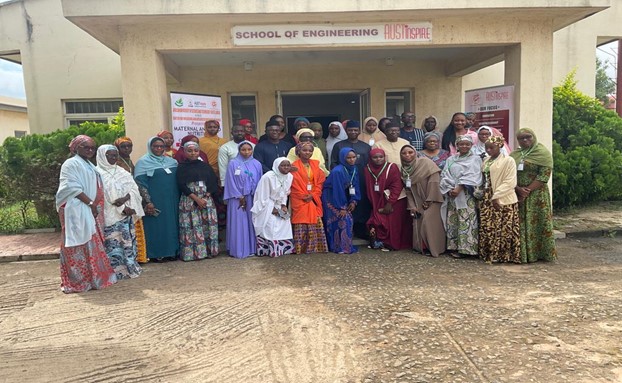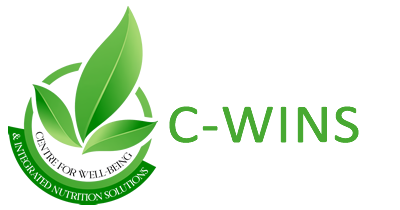Bridging Knowledge Gaps: The Maternal and Child Nutrition Training Program

In August 2023, a pivotal initiative was launched to address a critical gap in healthcare: the nutritional knowledge deficit among health service providers. The Maternal and Child Nutrition Training Program, a collaborative effort between the Centre for Well-being and Integrated Nutrition Solutions (C-WINS) and the African University of Science and Technology (AUST), marked a significant step forward in enhancing the capacity of healthcare workers in Nigeria. This program, piloted with health service providers from Kano and Katsina states, aimed to equip local healthcare professionals with the knowledge and skills necessary to combat maternal and child malnutrition effectively.
The Need for the Program
Malnutrition remains a significant challenge in Nigeria, particularly in the northern regions, where maternal and child malnutrition rates are alarmingly high. Health service providers, often the first point of contact for affected communities, play a crucial role in addressing this issue. However, many healthcare workers lack the specialized knowledge needed to tackle malnutrition effectively. The Maternal and Child Nutrition Training Program was designed to bridge this gap, providing targeted education and practical training to those on the front lines of healthcare.
Program Objectives and Approach
The program set out with clear objectives:
- Enhance Nutritional Knowledge: To provide healthcare workers with a deep understanding of maternal and child nutrition, including the causes, consequences, and strategies for prevention and treatment.
- Improve Practical Skills: To equip participants with the practical skills necessary to implement nutrition programs effectively, from community outreach to individual patient care.
- Build a Network of Practitioners: To cultivate a network of healthcare professionals committed to improving nutrition outcomes in their communities, fostering collaboration and ongoing learning.
The training sessions were designed to be comprehensive and interactive, combining theoretical knowledge with hands-on practice. Participants engaged in workshops, case studies, and group discussions, all aimed at deepening their understanding and enhancing their practical skills. The inclusion of real-world scenarios allowed participants to apply what they learned in a controlled environment, preparing them to address similar challenges in their professional settings.
Outcomes and Impact
The program successfully trained 29 healthcare professionals in September 2023, each of whom left the program with an enriched understanding of maternal and child nutrition and the practical skills needed to make a difference in their communities. The training resulted in several key outcomes:
- Heightened Awareness: Participants reported a significant increase in their awareness of nutritional issues, particularly in the context of maternal and child health. This awareness is the first step towards proactive intervention and prevention.
- Improved Skill Set: The practical training provided participants with the tools they need to implement effective nutrition interventions. This enhanced skill set is expected to lead to better nutrition outcomes in the communities they serve.
- Network Building: The program also succeeded in building a network of healthcare professionals dedicated to improving nutrition outcomes. This network is a valuable resource for ongoing support, collaboration, and knowledge sharing.
Lessons Learned
The success of the Maternal and Child Nutrition Training Program highlights several important lessons:
- The Importance of Targeted Education: Specialized training programs that address specific knowledge gaps are essential in empowering healthcare workers to address complex health issues like malnutrition.
- The Value of Practical Training: Providing hands-on experience and practical tools is crucial in ensuring that healthcare workers can apply their knowledge effectively in real-world settings.
- The Power of Partnerships: Collaborative efforts, like the partnership between C-WINS and AUST, are vital in creating impactful programs. Such partnerships bring together diverse expertise and resources, enhancing the overall effectiveness of the initiative.
Looking Ahead
As the program continues to evolve, there is a clear path forward. Expanding the program to include more healthcare workers from additional states, incorporating new findings into the curriculum, and fostering ongoing collaboration among participants will be key to sustaining and amplifying its impact. The success of this pilot program is a testament to what can be achieved when knowledge, skills, and collaboration are brought together in the service of community health.
The Maternal and Child Nutrition Training Program stands as a beacon of progress in the fight against malnutrition in Nigeria. By empowering healthcare workers with the knowledge and tools they need, this initiative is making a tangible difference in the lives of mothers and children, paving the way for a healthier future for all.



